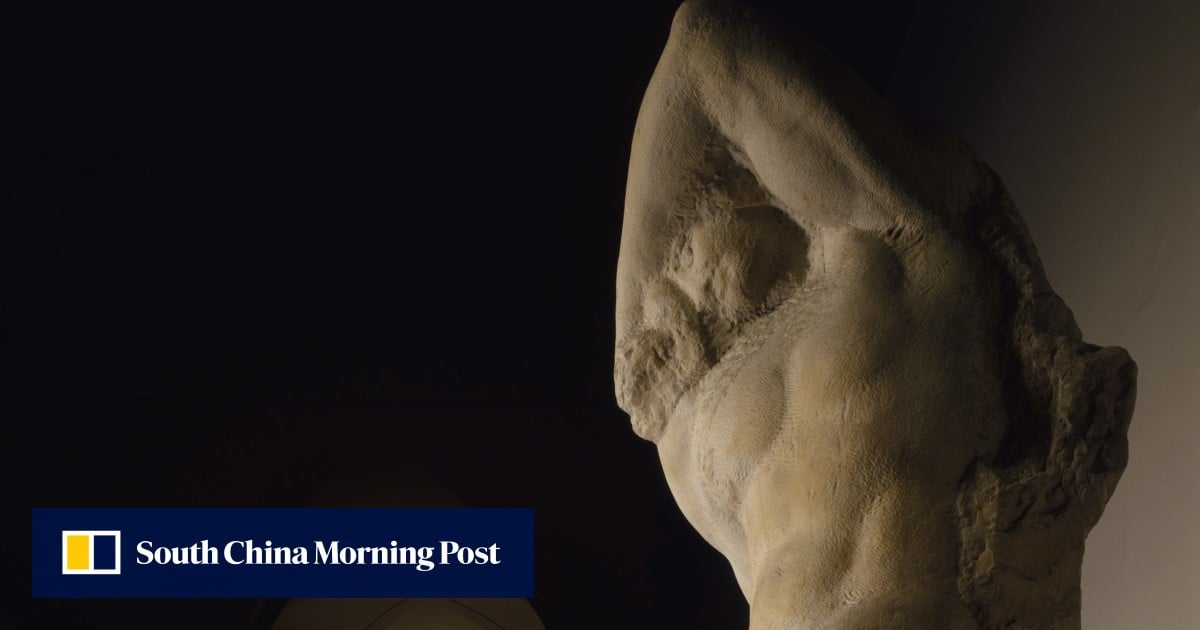The keynote is luxury, but variety is the byword, with booths selling everything from new trends in athleisure to masterwork examples of the not-yet-dead tie and business suit.
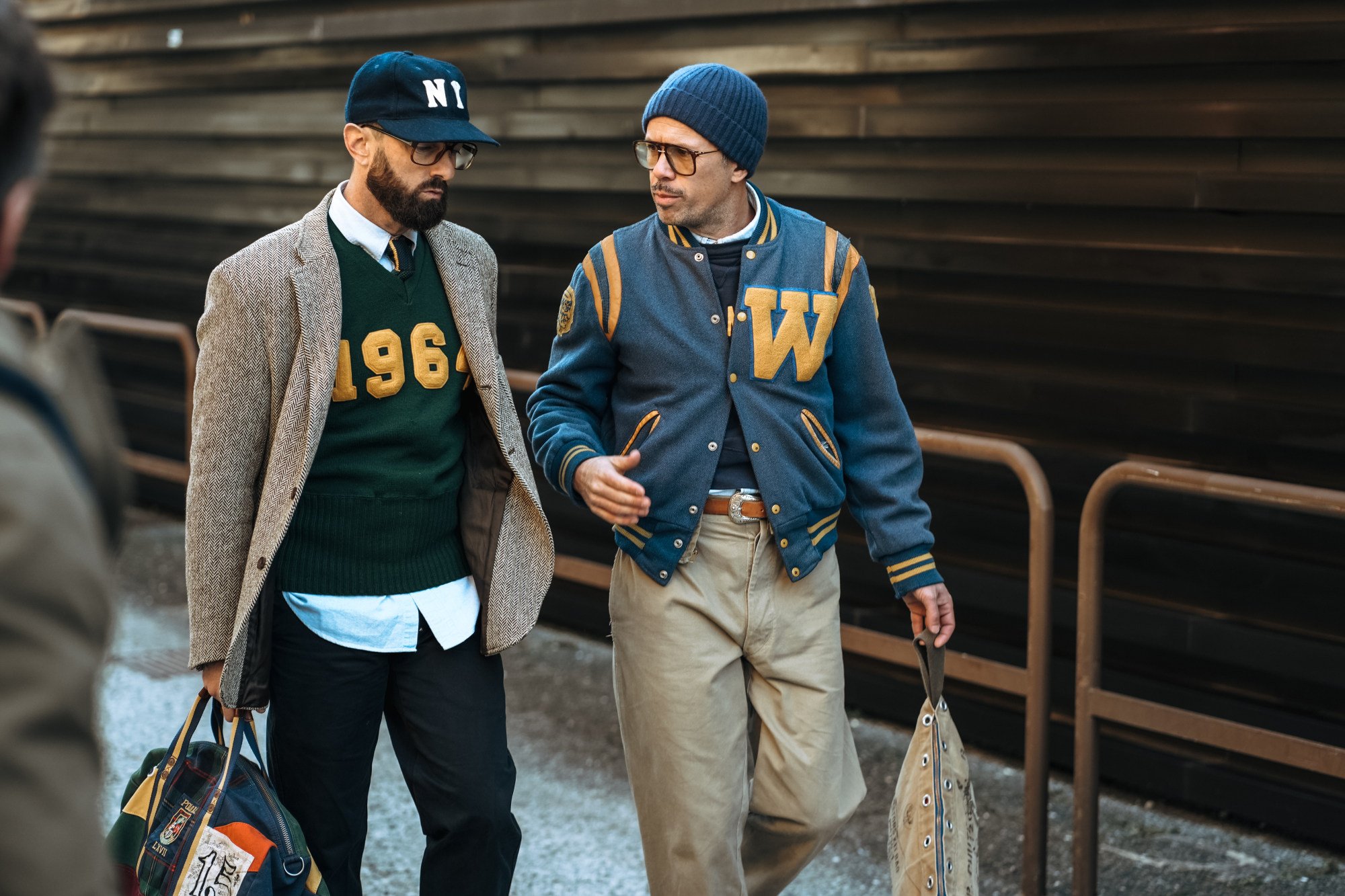
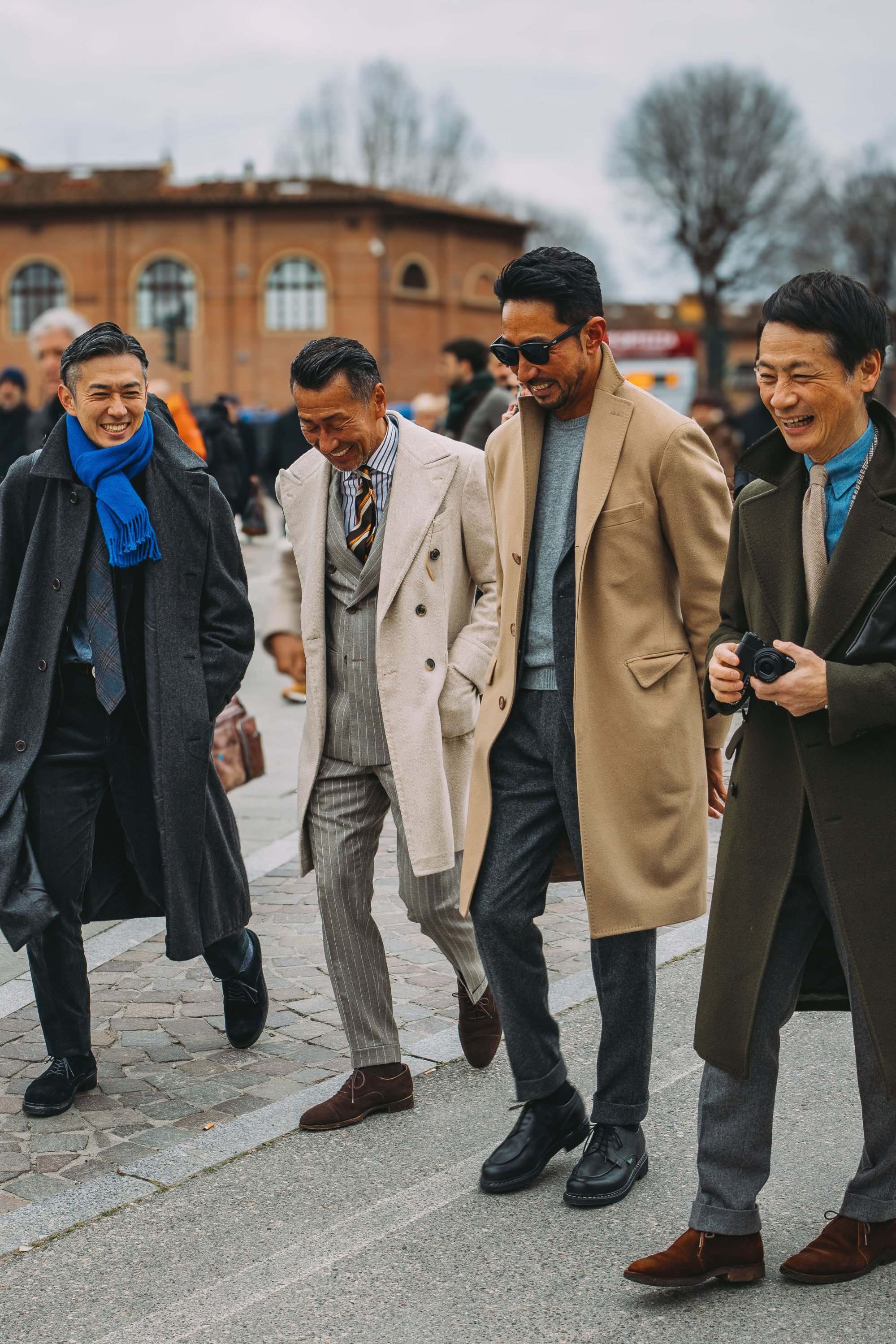
As a German, I am proud of the Neudeutsch (New German) “special project”: a pavilion in which noteworthy young German brands are given the chance to showcase themselves.
In an age when a man can feel he has overdone it with a collared shirt and new trainers, here is a small city populated with men in handmade suits, bicoloured leather shoes and long, regal overcoats.
Many are elegant, some are downright flamboyant, but all are aware that they are there as much to be seen as to see.
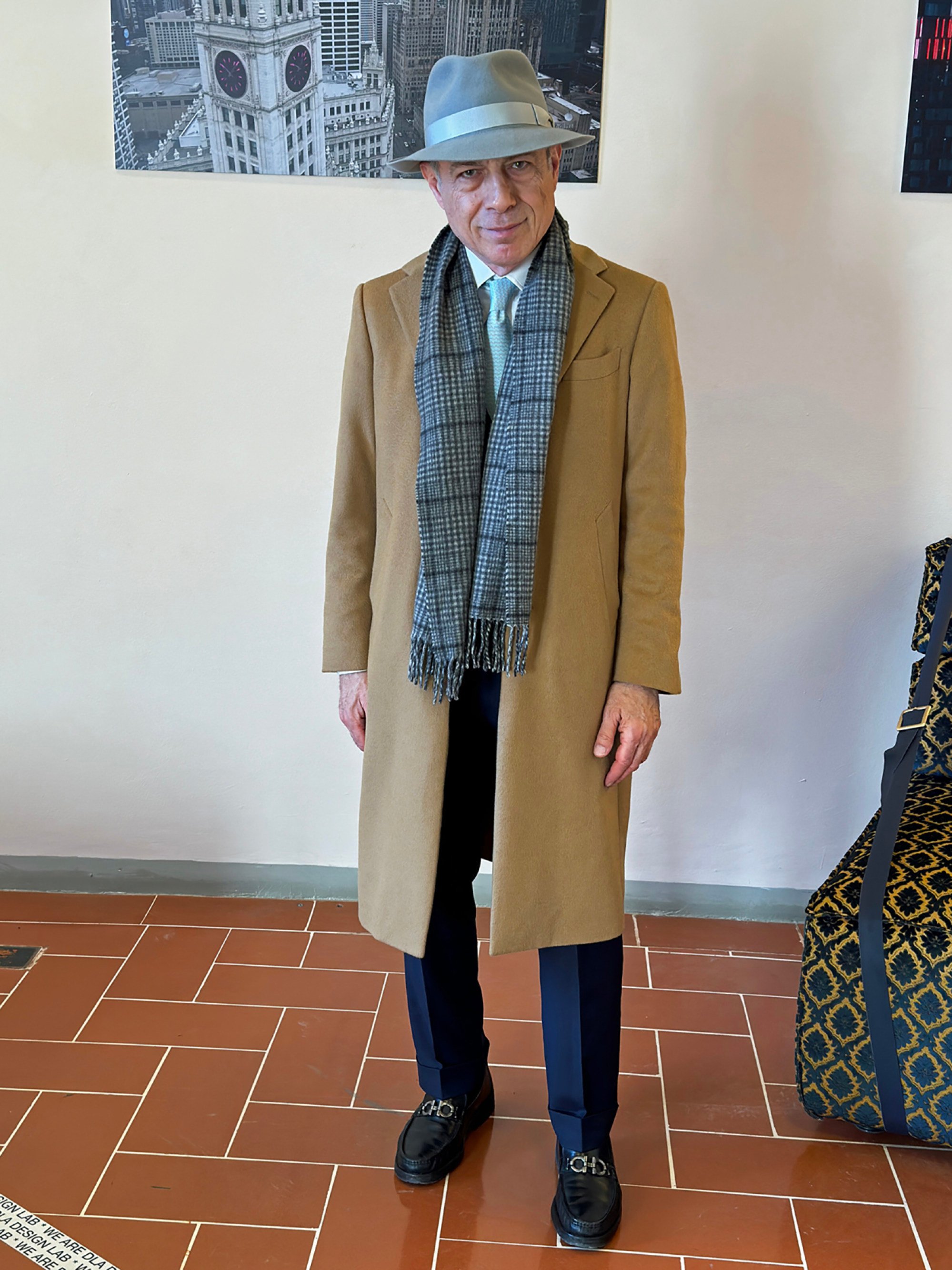
I have access to the secluded press room, where journalists work at long tables with the collective intensity of the Nasa control centre crew during a launch. Everyone at Pitti, however, becomes part of the show, and I am no exception.
Paparazzi pop off at us like snipers, which I did not expect. In the Borsalino hat I bought in Rome, a bespoke blue Henry Poole three-piece suit, my tan Knot Standard overcoat and an assemblage from my collection of Ferragamo shoes and accessories, I unintentionally make myself fair game.
It is a strange turnabout – the journalist come to do his job made the object of the reporting by others. As a photographer, I also have to ask myself: are we really that intrusive?
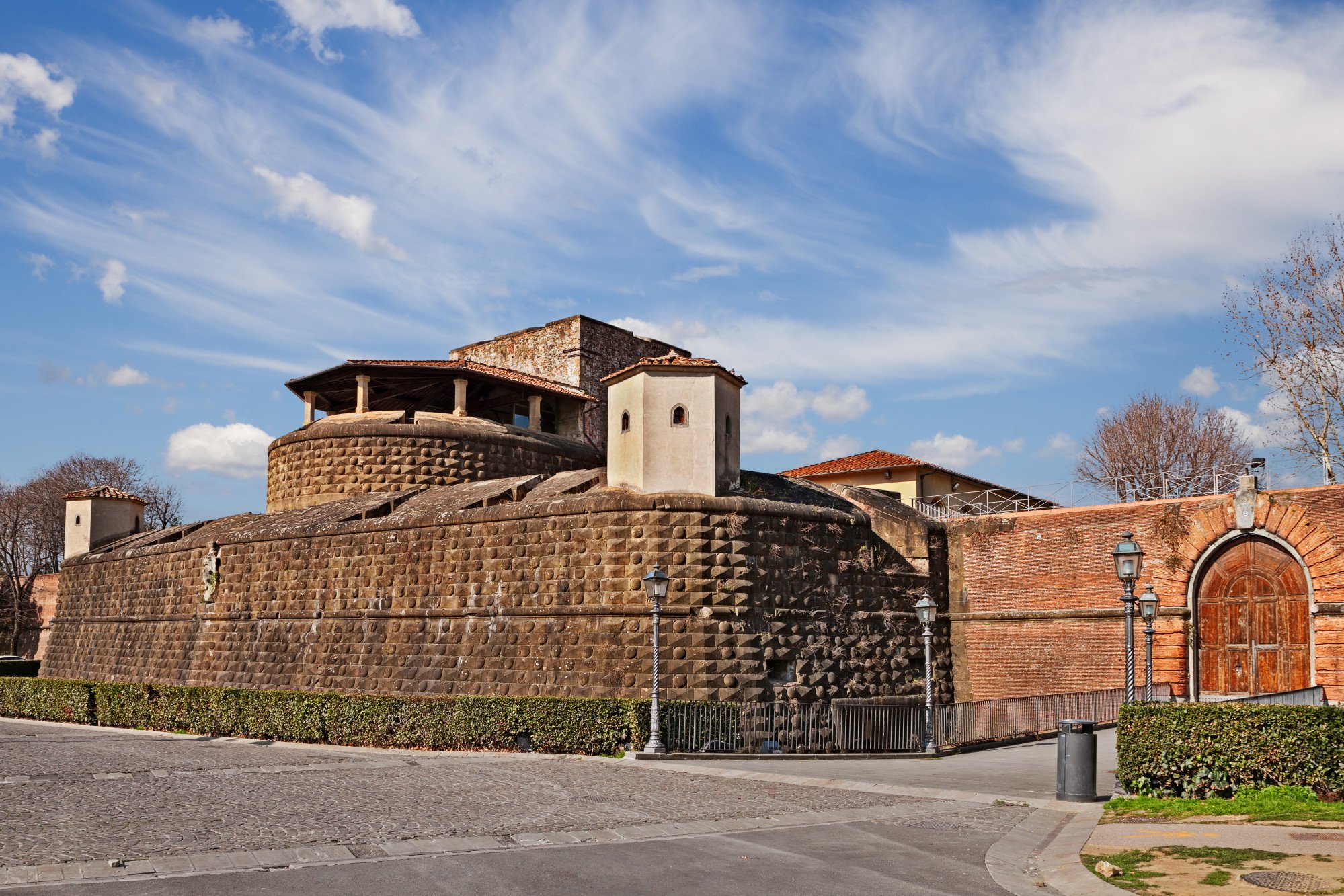
Florence is one of those European cities that is small in size but enormous in importance. It is the birthplace of the Renaissance, that reflowering of the glory of Western civilisation after a millennium of troubled quiescence.
I often say that art follows commerce; Florence brought on the Renaissance in large measure by reinventing European trade and finance. This may be a beautiful place, but it is often overlooked that, to this day, if you want to know how to run a business, ask a Florentine.
Florence has as many major works by Old Masters as other Italian cities have types of pasta. And throughout Italy, an expansive definition of art includes the applied arts.
24 hours in Milan: coffee, shopping, Chinese food, churches and crystals
24 hours in Milan: coffee, shopping, Chinese food, churches and crystals
As a devoted museum-goer, it is natural that I visit not just the Uffizi Gallery (for Leonardo da Vinci paintings) and the Galleria dell’Accademia (for Michelangelo sculptures) but the Museo Ferragamo, which has recently opened an exhibition about the personal history and works of its founder, the shoemaker Salvatore Ferragamo.
While still in his teens, and with World War I causing much damage and heartache in Italy, Ferragamo moved to the United States in 1915, and worked with his brother for a short time in a cowboy boot factory in Boston, before moving to California.
He grew wealthy making shoes for film stars and studios. He enrolled as an evening student at the University of Southern California, in Los Angeles, to study the anatomy of the foot.
After a motor accident in which he lost a brother, he built the traction machine that saved his badly injured leg.
He returned to Italy in 1927. Settling in Florence, he eventually bought the magnificent medieval Palazzo Spini Feroni, which the Ferragamo company (now publicly traded) still owns and which serves as home to the museum.
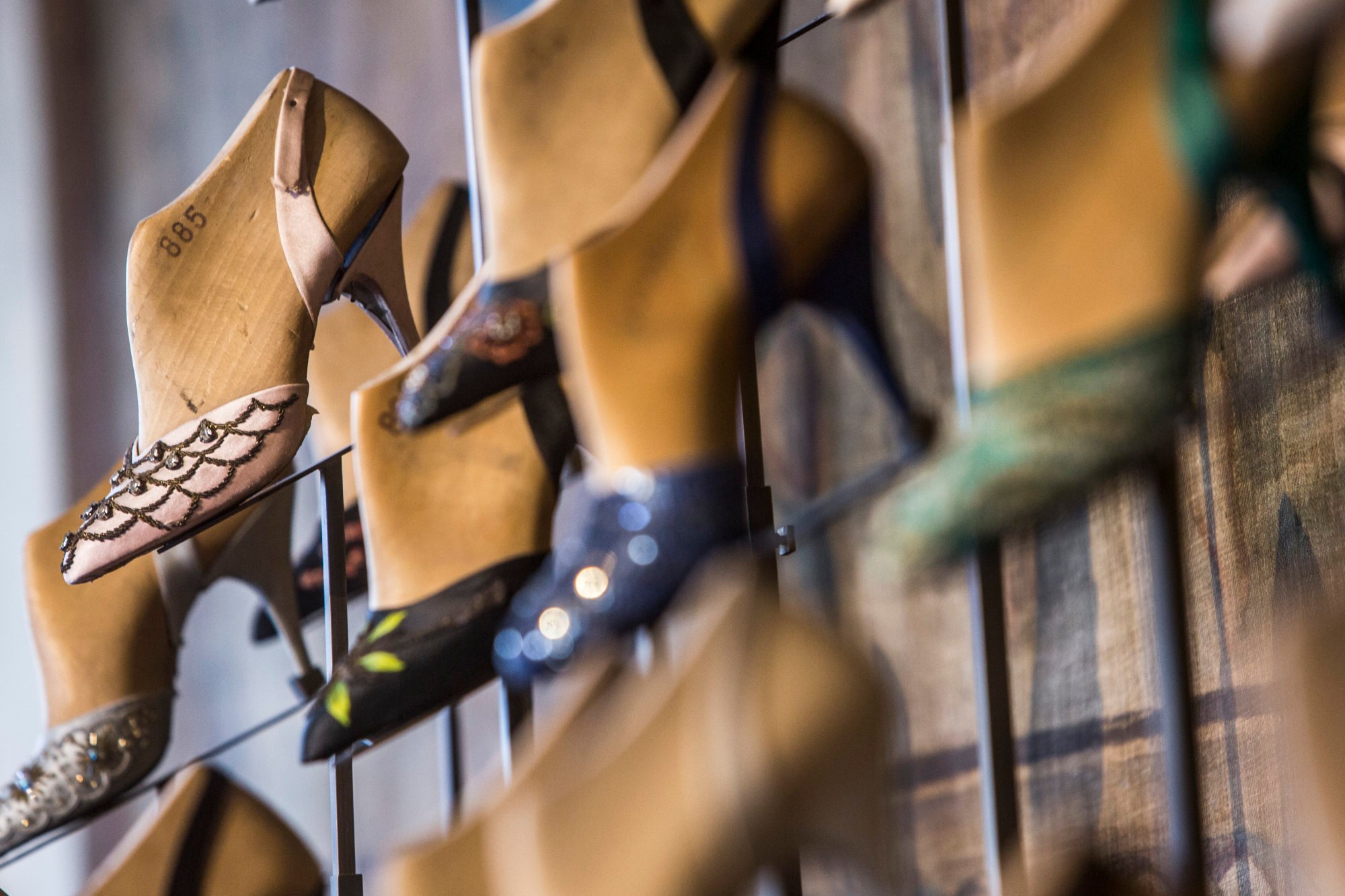
The exhibition is an homage to inventiveness. Ferragamo could make elegant shoes with uppers formed of fishing wire or with wine corks for heels. When materials were in short supply during World War II, he used paper instead of leather.
Given that I am hobbling around Florence on a foot injury caused by poorly made cowboy boots I had bought in Texas, the American state most closely associated with cowboys, I am grateful that, for Pitti, I have packed only comfortable Ferragamos.
Whenever I’m in Florence, I prefer to stay at one of the luxury hotels on its outskirts, with the low, articulated panorama of the city on one side and the lush and hilly Tuscan countryside on the other.
I use my membership in the Leaders Club of the Leading Hotels of the World to snag a serious upgrade at the Villa Cora. It is really that – a former private villa of a financier. Below the windows of my suite, steam rises into the winter mornings from an azure, heated pool.
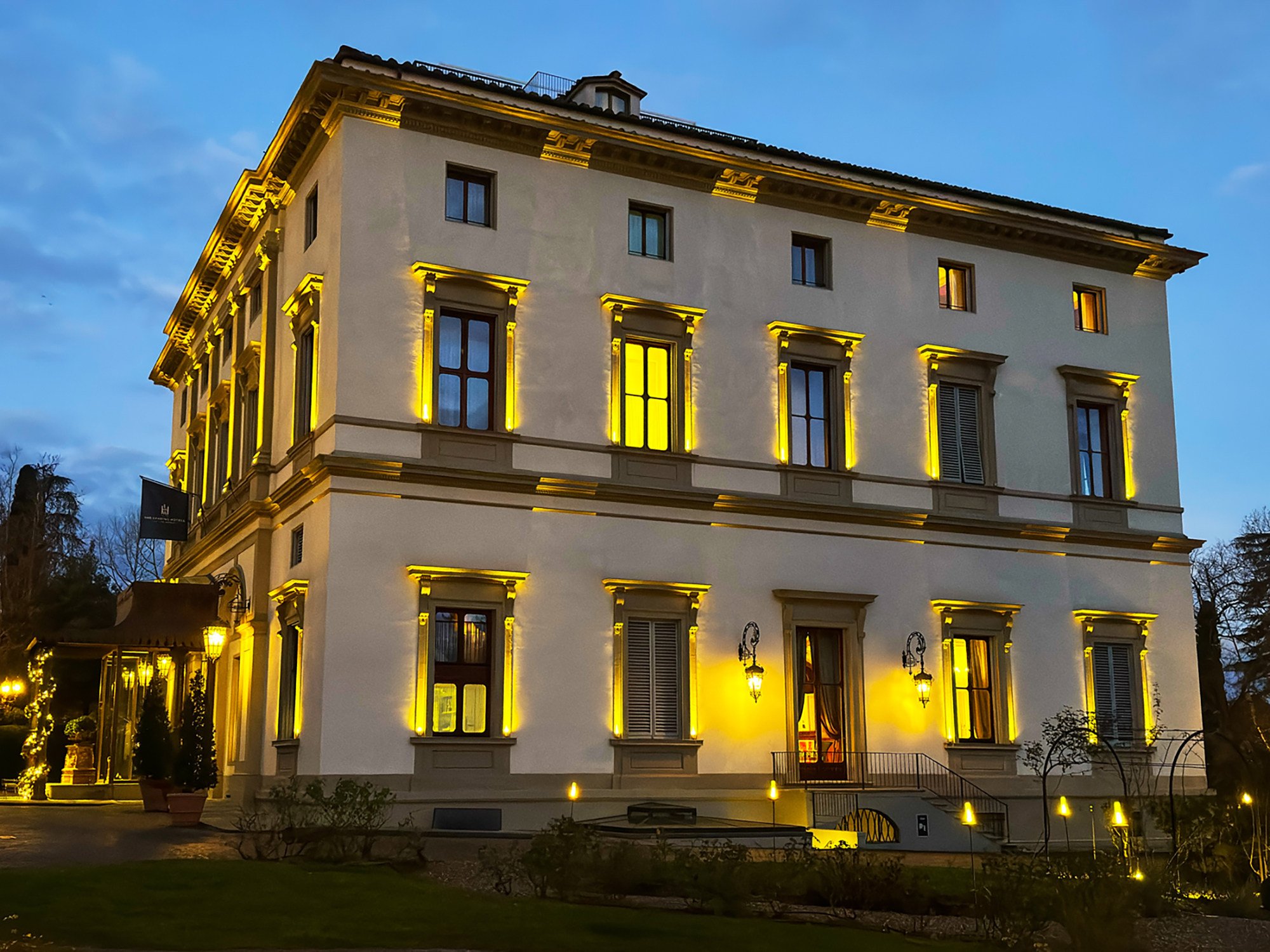
It takes three days for me to figure out the spa lighting and numerous shower heads in my Carrera marble bathroom. (I know, I could have asked, but that would have been cheating.)
I extend my stay by one night, then another, only to leave when told that the hotel was closing in two days for its annual one-month hiatus.
On the Ponte Vecchio, the medieval shop-lined bridge that is one of the postcard sights of Italy, commerce and the applied arts mix as I buy gifts at one of the small jewellery stores that line both sides of the walkway.
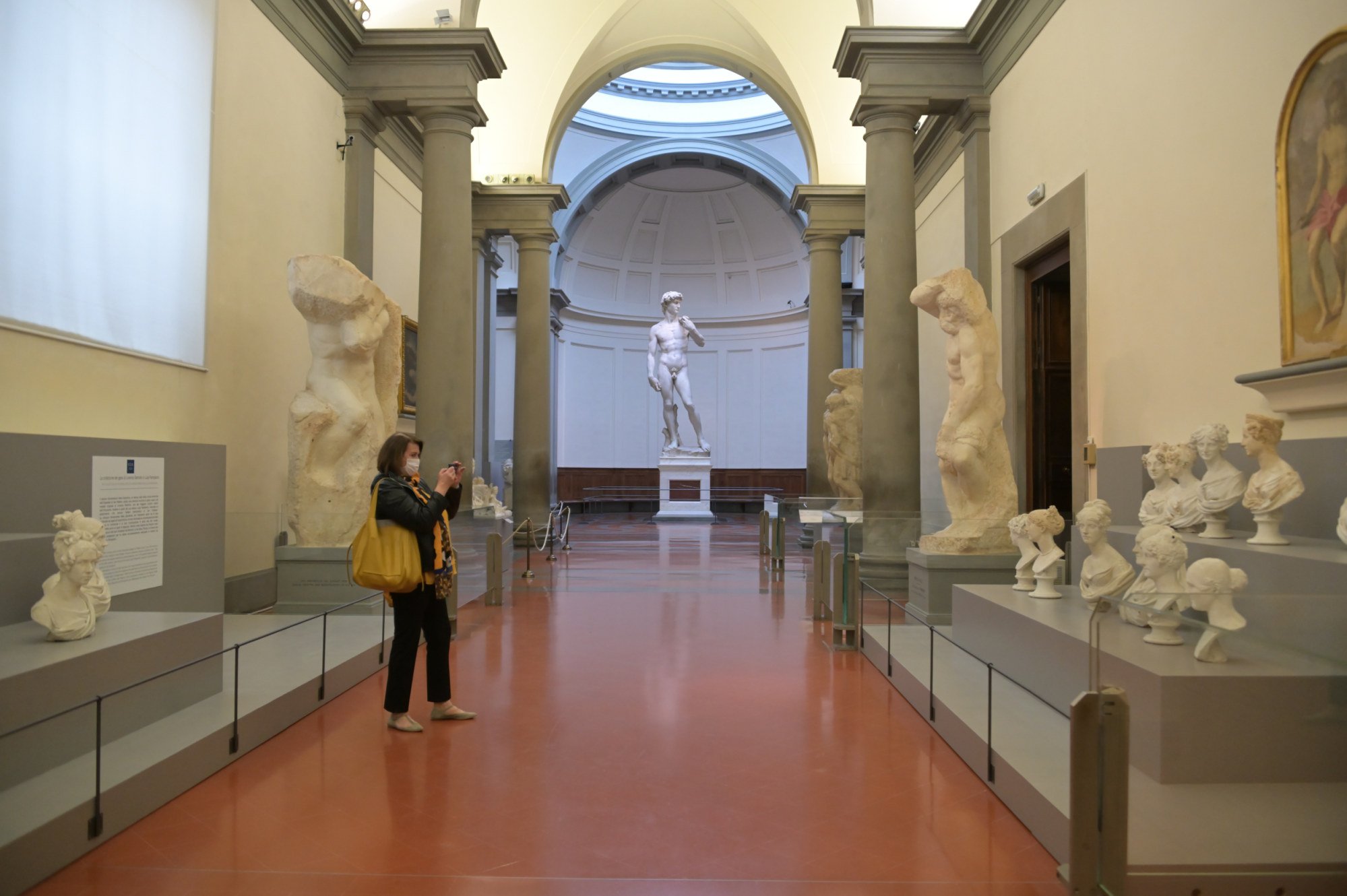
At the Galleria dell’Accademia, Michelangelo’s colossal nude of the biblical hero David rises with insouciant majesty under the central dome.
As surely happens regularly with this famous masterpiece of Renaissance sculpture, a young American woman giddily raises her hand in a cupping motion while a friend photographs her on a phone; the finished image will be an optical illusion of the woman grabbing the catapult-bearing warrior by his circumcised personal best.
Few seem to notice that four unfinished Michelangelo statues from the series known as the Slaves or Prisoners are lining the nave-like entry of the same gallery.
That illustrates why here, as in so many other cities, the best way to see a place about which you know something is to stop, breathe, look around and then seek out something you knew nothing about at all.
I come from New Orleans, a city that knows how to have fun, and I live in New York, which knows how to do business. Florence is a reminder that you really can splice that together if you make the effort; that style, elegance and grace are truly timeless; and that the epicentre of the essential reinvigoration of Western civilisation is a treasure for all the world to visit and to savour.
Alan Behr is a writer, photographer and lawyer. He is the author of the travel memoir Once Around the Fountain.

